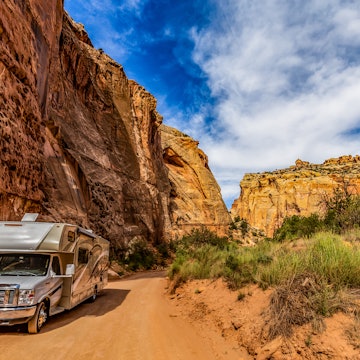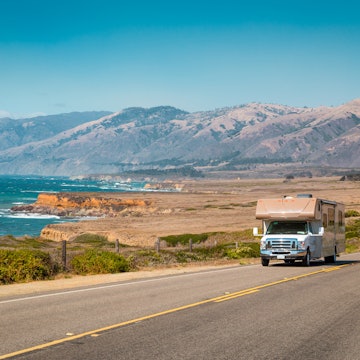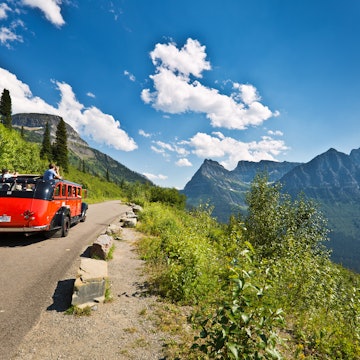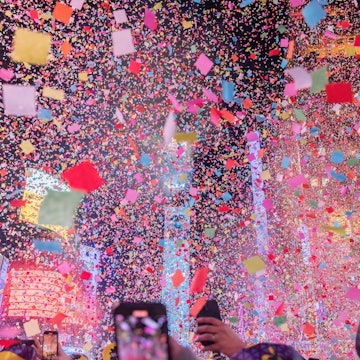
Lonely Planet Q&A with United Street Tours owner, Chakita Patterson

Feb 1, 2021 • 8 min read

Chakita Patterson has been running her United Street Tours business since February 2018 © Courtesy of United Street tours
Chakita Patterson's Black history walking tour was just supposed to be for her high school students. It was a way to teach Black history – American history – which, outside of Dr. Martin Luther King or Rosa Parks, is often omitted.
Turns out that lack of knowledge extended beyond the walls of KIPP Nashville Collegiate High School, where Patterson worked as the Dean of Students. Always one to accept a challenge, the Memphis native started United Street Tours in February of 2018. What began as a single Nashville-based Black history tour has blossomed into multiple highly curated walking tours that highlight Nashville's rich history.
Editor's note: Due to the COVID-19 pandemic, United Street Tours is only offering virtual tours.
Why was United Street Tours needed beyond its original scope?
We all have to stop and realize we receive so many messages throughout our day, my whole point is from whose lens are you viewing things from? And what’s missing? And a lot of the times the history and the stories and the relationships of marginalized groups are what’s missing.
I think people just began to realize that there’s a completely different side of Nashville that’s not being marketed or that we cannot access, so we have somebody whose willing to show us this stuff so that we can grow our lens. We’re going to take advantage of that. For me, it’s just providing opportunities for people to grow their lens.
Why should visitors to Nashville add your walking tours to their itinerary?
There are so many new people in Nashville. So many businesses and organizations in Nashville but I think you can only be a successful part of the Nashville community if you get out and engage with the community on a walking tour but to also ask yourself what tour can I experience that won’t give me the regular slogan of Nashville? What tour can I experience that will give me the side of Nashville that’s not always shown because to really be a part of the community you have to understand a lot of the dynamics of that community and I think that our tour does that.
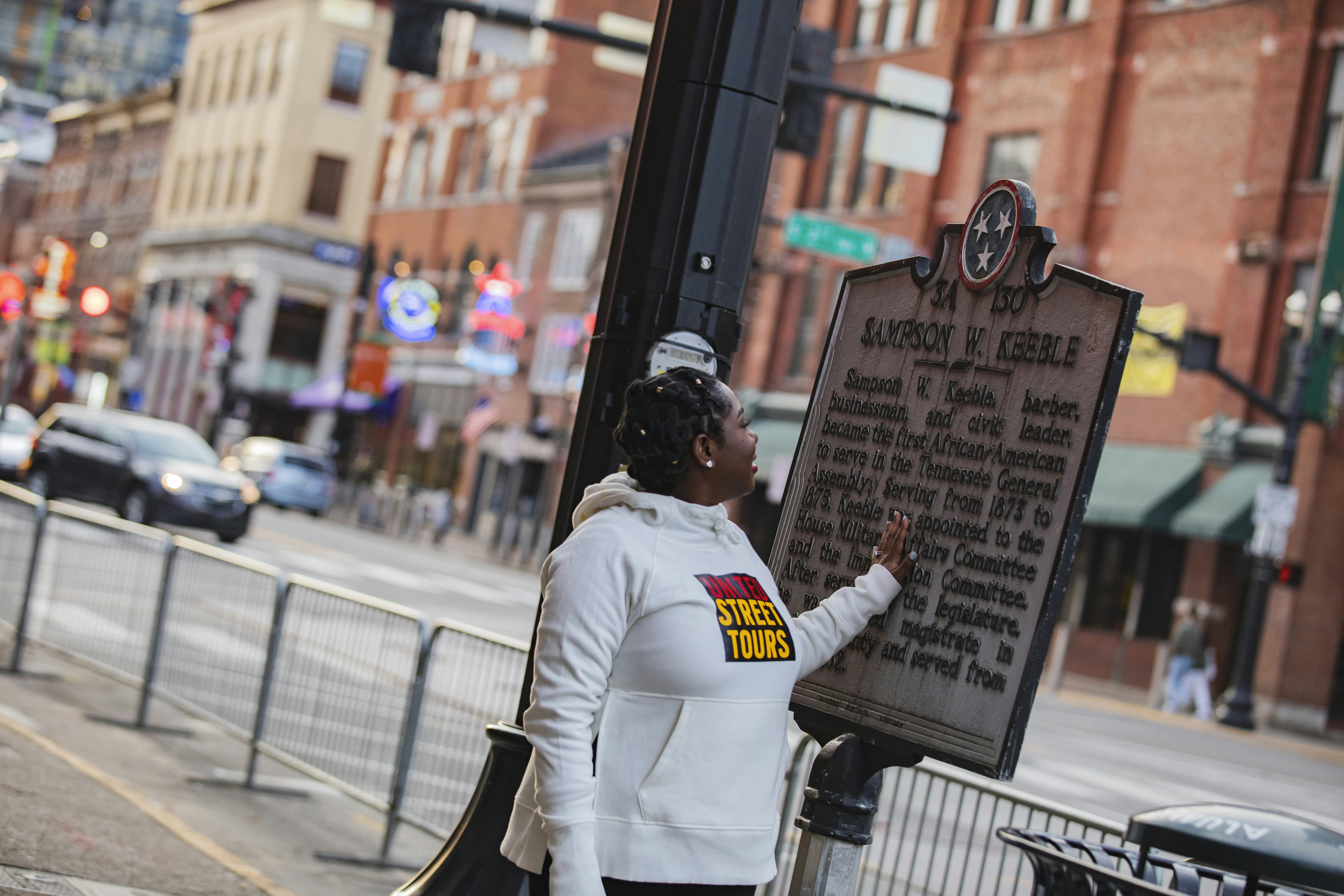
What is it about Nashville’s history you find so appealing?
I’m a native of Tennessee. Nashville’s history is Tennessee’s history and Tennessee history overlaps so much. Some of the same figures, some of the same people who were highly influential in Nashville were highly influential in Memphis. When you talk about Z. Alexander Looby, when you talk about the Underground Railroad, we’re all connected. All of Tennessee is connected. It’s not so much a fascination with Nashville history as much as it is a fascination with where I come from, which is Tennessee in general.
The thing that stood out to me the most in Nashville when exploring the Civil Rights history is the ability to talk to, connect and reach out to the actual Civil Rights leaders who pretty much are like ‘you’re not getting this history in a book, you’re getting it from me.’ That’s where the increased level of respect came from for me.
How does a tour go from an idea to a full tour?
Multiple customers start to say the same thing. After that, we say let’s look at Chicago, let’s look at New York, let’s look at LA. How are people in those cities doing it? What’s successful. We start calling people up. … After you’ve talked to people in the industry. You want to see if it’s feasible for you. How can we make this happen?
Once we get the logistics down. Then its 'what do we want to talk about? What would be impactful for people?' Then I start calling up customers. I do not mind calling them (to get a gauge on the possible new tour idea). If they say yes, we keep moving forward.
From there, it’s research and sometimes research looks like going and talking to the people in that community or who have lived in that community for 50-plus years. Sometimes research is going to one of the libraries and checking out books or getting books off Amazon. Research can look very different and depending on the tour it can take one month to six months to a year.
We find the key research that we think is transformational and then we start finding stories. Once we find stories then we start reaching out to people who are connected to the stories to enhance the story. From that point, we create an outline of what we want it to look like. That outline is based off what route makes sense.
How is United Tours becoming part of the Nashville tourism scene?
When I first started this tour, we would reach out to some of the major people who have been in the industry for a while and just say ‘hey we would love to partner with you, we would love to sell your tickets, you sell our tickets. And people were like we can’t sell what you’re selling. We can’t sell an African American history tour in a country music town.’ And I was like ‘you just watch, you just wait, you’ll see. I show up every day and I see people’s faces when they have this enlightenment.'
We are really in a space where we are a part of the tourism community versus trying to enter the community. Now, we are definitely a community but I think with any family, people are going to be like ‘who is this new member of the family? What can you bring to the table?’ And now that I’ve shown that I can bring an awesome five-star experience that’s worthwhile that people enjoy and people engage with here in the city of Nashville, it’s a much, much better thing.

What are your favorite Nashville spots?
I’m a foodie, so I love the Farmer’s Market because you have foods from different cultures. One day I may feel like I want some Jamaica Way and go get some Jamaican food. One day I may feel like Indian food. Another thing I like about the Farmer’s Market is when you go outside, they have local vendors. I love buying local and I love supporting the Nashville economy.
I also love the Tennessee State Museum. I can not tell you how many times I’ve been there, too many to count. I love going there individually and I love taking groups there because it’s something in there that everybody can identify with. There are so many stories in that museum that come to life. I think they did a really good job at not only displaying the stuff but also communicating what you’re seeing through the videos and stuff that they have.
How do you keep Black people involved in the tour?
My whole thing with creating these experiences when I first started was ‘I can’t wait to teach all the Black people about our history and empower us and just give us the knowledge that has been hidden from us.’ When I first started doing the tours, it was a ton of Black people but then I started getting people from England, people from Australia, people from China. I was like ‘hold on! wait a minute now! We’re getting a little diverse.’
I’m a very spiritual person and I came to the realization that the Universe, God is going to send me the people who I’m supposed to impact. So I focus less on how the people look who come on my tours versus how can I make sure whoever comes on the tours get an impactful experience and walk away saying I feel connected to this place.
My main focus by keeping African Americans at the center is through the stories we tell and our tours going to Black-owned businesses. That has always been important to me. Nashville makes millions of tourism dollars every single year. … It’s not like we’re decreasing in tourism dollars. My whole thing is how do we make sure some of this tourism overflow gets to minority communities, African American communities, Hispanic communities. How do we make sure that it does just stay with the old money in Nashville.
How has gentrification impacted your tours?
When it comes to gentrification I have interactions with people where gentrification has affected (them) in gruesome ways. Ways that sometimes make me emotional to talk about and I also interact with people who say ‘hey it made a big change in my life because I was able to sell my business or relocate my business or grow my business because this thing is happening.’
So where United Street Tours falls as far as gentrification goes, I’m at a place in my business where it doesn’t matter how the environment has changed. I have a story to tell and whether the same building is there or not, the story is still going to be told. Nothing is going to stop me from telling the stories that need to be told.
So the North Nashville community can become completely different, but they’re still going to see Chikita walking down that sidewalk telling them they're living in a historic African-American community that was built by slaves fleeing from the Civil War and fleeing from slavery. You’re still going to hear those stories.
If that makes you uncomfortable, guess you gotta learn to make room for all of us.
You might also like:
The most essential US Civil Rights sites in the South
The 5 best Harriet Tubman sites you can visit
Creole trail rides highlight Black cowboy history
This article was originally published in February 2020 and updated in February 2021.









